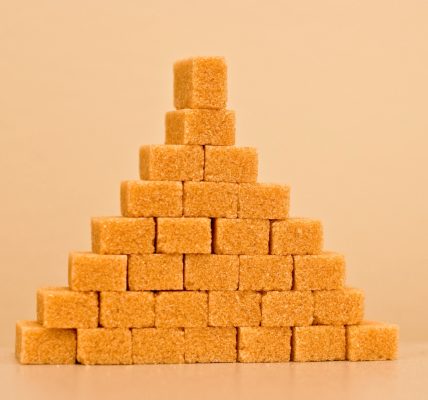The Suspect Fits the Description

Is sugar addictive? Is sugar a drug? If it is either or both, shouldn’t it be criminalized? So many questions. So many answers. Like most things in life, the issue is multifactorial. Researchers may be both honest and earnest, and yet still disagree with each other, and disagree even with themselves at different stages of their own careers.
Are drugs the only thing that can be addictive? If so, then what are we to make of all the talk of sex addiction, gambling addiction, internet addiction, process addiction, and so forth?
If, among actual substances, only drugs can truly be deemed addictive, and if sugar fulfills all the criteria that define addictiveness, then does that automatically make sugar a drug?
If it is the very quality of being potentially addictive that defines something as a drug, then sugar must be a drug. If it is not the potential for addiction that makes something a drug (therefore disqualifying sugar) then we’re back to square one, asking how there could be something called, for instance, porn addiction?
What is a drug, anyway? One dictionary says it’s a substance that has a physiological effect when introduced into the body. But wait — couldn’t that, with equal precision, be said of water? A person dies after about three days without water. Wouldn’t dying without it, or being kept alive by it, both qualify as physiological effects? Does that mean water is addictive? Does that make it a drug?
People who suffer from diabetes would die without their insulin injections. Does this mean they are addicts? Does it make insulin a drug? No, insulin is a whole different thing — a biologic medication.
“A biologic is manufactured in a living system such as a microorganism, or plant or animal cells.” Sugar comes from a plant. So, is it a biologic medication? On the other hand,
Drugs generally have well-defined chemical structures, and a finished drug can usually be analyzed to determine all its various components.
Sugar is C12H22O11: 12 carbon atoms, 22 hydrogen atoms, 11 oxygen atoms. That description qualifies as well-defined, and sounds like it would make sugar a drug. According to the National Cancer Institute, a drug is any substance (other than food) that is used to prevent, diagnose, treat, or relieve symptoms of a disease or abnormal condition:
Drugs can also affect how the brain and the rest of the body work and cause changes in mood, awareness, thoughts, feelings, or behavior.
So, that sounds like sugar really could be a drug! Except for it being a food. So it couldn’t. Now, what about dextrose?
Dextrose injection is a sterile solution used to provide your body with extra water and carbohydrates (calories from sugar).
Once it gets inside the body, it’s called glucose. But having been given as a medicine… doesn’t that technically and automatically make it a drug?
And everyone agrees that some drugs can be addictive. So, why would they balk at classifying sugar as a drug, especially when so many users affirm that it is, indeed, addictive?
Some authorities say a thing that stimulates the brain’s reward center in the manner of a recreational drug, is then a drug. Pulitzer Prize winner Michael Moss wrote,
In my research, I found that hyperprocessed, convenient food products can be as addictive as cigarettes, alcohol and drugs, if not more so… Sugar […] which many people cite as a trigger for cravings, is now being added to an estimated two-thirds of the items in the supermarket.
Not to put too fine a point on it, but it kind of looks like what makes those food products so addictive is, for the main part, the sugar. If it is a drug, the biggest pusher of all time was a fellow named Ancel Keys, who is said to have taken millions of dollars in bribes from the sugar industry to blame dietary fat for heart disease. One observer has declared that for half of all the lifestyle-disease deaths on the planet, the blame can be squarely placed on Keys.
Another anonymous critic quipped, “High fructose corn syrup is a government conspiracy to keep people from reaching social security age.”
Given the world’s vast experience with addicted persons, thousands of academic studies, the extensive laws and expensive enforcement of them…. What does it mean that agreement cannot even be reached on whether a common substance is or is not addictive?
Written by Pat Hartman. First published February 23, 2024.
Sources:
“How do Drugs and Biologics Differ?,’ bio.org, undated.
“Drug,” Cancer.gov, undated.
“Dextrose (Intravenous Route),” MayoClinic.org, undated.
“Op-Ed: Big Food wants us addicted to junk food,” LATimes.com, June 6, 2021.
Image Copyright: Layla’s Sugar Flowers/CC BY-SA 2.0 DEED.




